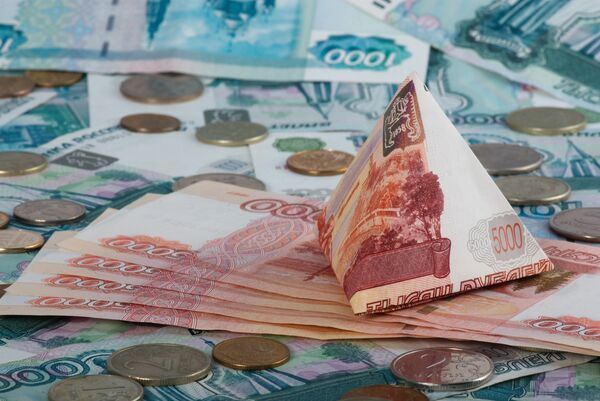MOSCOW, March 28 (RIA Novosti) - Russia and North Korea have signed a new protocol to transition to using the ruble for payments between the two countries as part of an effort to boost annual bilateral trade to $1 billion by 2020, Russia's Far East Development Ministry said Friday.
The announcement came as Russian officials have expressed a desire to explore new markets for the country's businesses, following the introduction of sanctions by the West in reaction to Moscow's stance over Crimea. Russian leaders have simultaneously reassured international investors the country remains open for business, and there are no plans to restrict international commerce.
The protocol announced Friday came following a visit of a Russian delegation to the Asian country for a meeting of a standing bilateral commission, timed to mark the 65th anniversary of a cooperation agreement between the Soviet Union and North Korea.
The parties agreed to move towards settling payments in rubles as well as adopting further measures to boost bilateral trade, including easing visa procedures and providing for Russian access to proposed special economic zones in the country, the ministry's statement said.
The ministry reaffirmed the countries' mutual interest in joint projects with South Korea, including international connections for railways, gas pipelines and power lines.
The Russian delegation also proposed the entry of Russian businesses into the Kaesong Industrial Park, a special economic zone in North Korea just north of Seoul where South Korean companies are allowed to employ northern workers.
The two sides identified areas for further cooperation, including a transshipment complex at the port of Rason and technical cooperation for the modernization of North Korea's mining sector, automobile industry and electric power plants.
According to the statement, during the talks Russian Far East Development Minister Alexander Galushka emphasized that achieving such goals would only be possible if stability is maintained on the Korean peninsula.
The next meeting of the bilateral commission is scheduled for June in Russia's far eastern Vladivostok.


